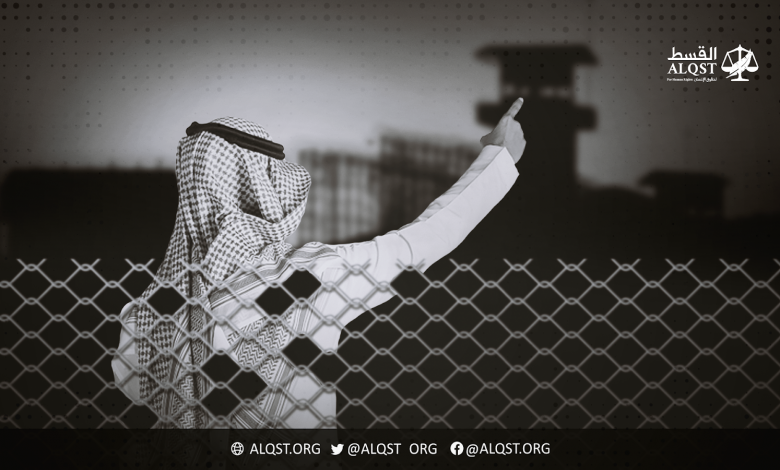
ALQST for Human Rights study concluded that Saudi violations against political detainees in the Kingdom’s prisons increased since Crown Prince Mohammed bin Salman took office in 2017.
In its detailed survey, ALQST for Human Rights studied the prison system in the Kingdom and the poor health conditions in prisons.
It also looked at the medical deprivation against detainees and the increasing use of secret detention facilities to practice torture and obscure it.
The study was titled Under the Cover of Secrecy: Prisons and Detention Centers in Saudi Arabia.
It was based on the organization’s seven-year work documenting human rights violations in Saudi Arabia and is based on a unique survey that interrogated current and former detainees and their families.
Most of the detainees included in the study were held without a legitimate right. Two-thirds of them were held without charge or released after a while of their sentence.
Half of the detainees had health problems due to their conditions of detention, and almost all of them reported being subjected to torture or other ill-treatment.
These include threats, beatings, solitary confinement, deprivation of food and lack of family contact.
“The Saudi regime has never set out to address these issues properly,” said Deputy Director of ALQST Joshua Cooper.
Cooper added that ALQST is increasingly concerned about the increasing interference from State Security and the Royal Court in the judicial and legal system since 2017, with thousands arrested on false claims.
The London-based human rights organization frames its findings in the context of Saudi Arabia’s commitments to international treaties it has ratified and complex domestic regulations.
ALQST recommended a series of fundamental legal reforms and measures to ensure the security and safety of detainees, an end to the practice of torture, and the immediate and unconditional release of all prisoners of conscience.
ALQST recommended that the Saudi authorities ratify the International Covenant on Civil and Political Rights and the International Covenant on Economic and Social Rights
and cultural.
It also recommended the need to ratify the Convention against Torture and Other Cruel Treatment or Punishment and the Convention on the Protection of the Child.